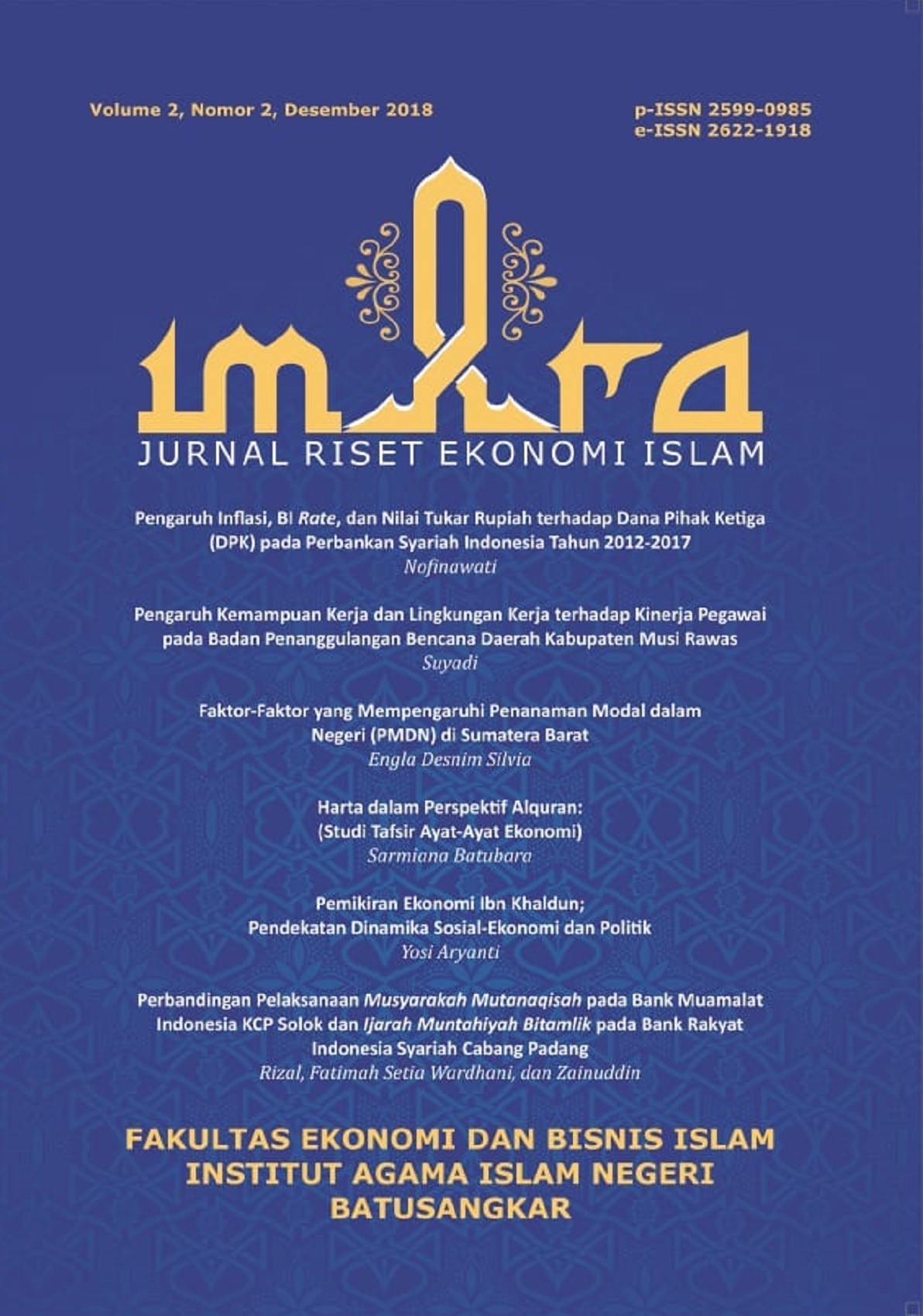The Influence of Poverty, Unemployment and Government Expenditures on the Human Development Index (HDI)
DOI:
https://doi.org/10.31958/imara.v8i1.12226Keywords:
Government spending, Human Development index (HDI), Poverty, UnemploymentAbstract
Background : As a developing country, the government has an important role in accelerating economic development. Various policies are implemented to achieve economic development goals. Fiscal policy is an economic policy carried out by the government regarding revenues and expenditures to achieve goals such as economic growth and general economic stability.
Purpose : This researcher examines the influence of poverty, unemployment and government spending on the Human Development Index (HDI)
Method : This type of research is quantitative research. This research used 12 provinces in Indonesia. The research period covers 2010-2020, the method applied in this research is panel data, using secondary data and this research software uses eviews 10
Result : The research results show that: (1) poverty has a significant negative effect (0.0000) on the human development index (HDI), (2) poverty has a significant negative effect (0.0000), (3) government spending has a significant positive effect (0.0000 ) on the human development index.
Conclusion : This research shows that the poverty variable has a significant negative effect on the human development index. Furthermore, the unemployment variable also has a significant negative effect on the human development index. Meanwhile, the last variable, namely government spending, has a significant positive effect on the human development index. The coefficient of determination (R2) explains the variables of poverty, unemployment and government spending which can explain variations in the human development index (HDI) variable of 91.3%. Meanwhile, the rest is explained by other variables outside this research.
References
Bahrudin, Moh. Ilmu Ushul Fiqh. Lampung: Aura, 2019.
Devi, Aulia Diana. “Studi Kritik Matan Hadis” Al-Dzikra. vol. 14, no. 2, 2020.
Hudaya, Hairul. “Metodologi Kritik Matan Hadis Menurut al-Adlabi dari Teori ke Aplikasi” Ilmu Ushuluddin. vol. 13, no. 1, 2014.
al-Idlibi, Shalah ad-Din bin Ahmad. Manhaj Naqd al-Matan ‘Inda ‘Ulama al-Hadits an-Nabawi. Beirut: Dar al-Afaq al-Jadidah, 1983.
al-Qaththan, Manna’. Mabahits fi Ulum al-Hadis. Kairo: Maktabah Wahbah, 2007.
Ritonga, Ahmadi, dkk. “Kontribusi Pemikiran Salah ad-Din Ibn Ahmad al-Idlibi dalam Metode Kritik Matan Hadis” at-Tahdis. vol. 1, no. 1. 2017.
ash-Shiddieqy, Muhammad Hasbi. Sejarah dan Pengantar Ilmu Hadis. Semarang: Pustaka Rizki Putra, 2009.
Thahan, Mahmud. Taysir Mushthalah al-Hadits. Riyadh: Maktabah al-Ma’arif, 1996.
Yuslem, Nawir. Ulumul Hadis. Jakarta: Mutiara Sumber Widya, 2001.
Downloads
Published
How to Cite
Issue
Section
License
Copyright (c) 2024 wardatul Wahidah Rahman

This work is licensed under a Creative Commons Attribution-NonCommercial 4.0 International License.
Authors who publish with this journal agree to the following terms:
- Authors retain copyright and grant the journal the right of first publication with the work simultaneously licensed under?áa Creative Commons Attribution-NonCommercial 4.0 International License?áthat allows others to share the work with an acknowledgment of the work's authorship and initial publication in this journal.
- Authors are able to enter into separate, additional contractual arrangements for the non-exclusive distribution of the journal's published version of the work (e.g., post it to an institutional repository or publish it in a book), with an acknowledgment of its initial publication in this journal.
- Authors are permitted and encouraged to post their work online (e.g., in institutional repositories or on their website) prior to and during the submission process, as it can lead to productive exchanges, as well as earlier and greater citation of published work.









